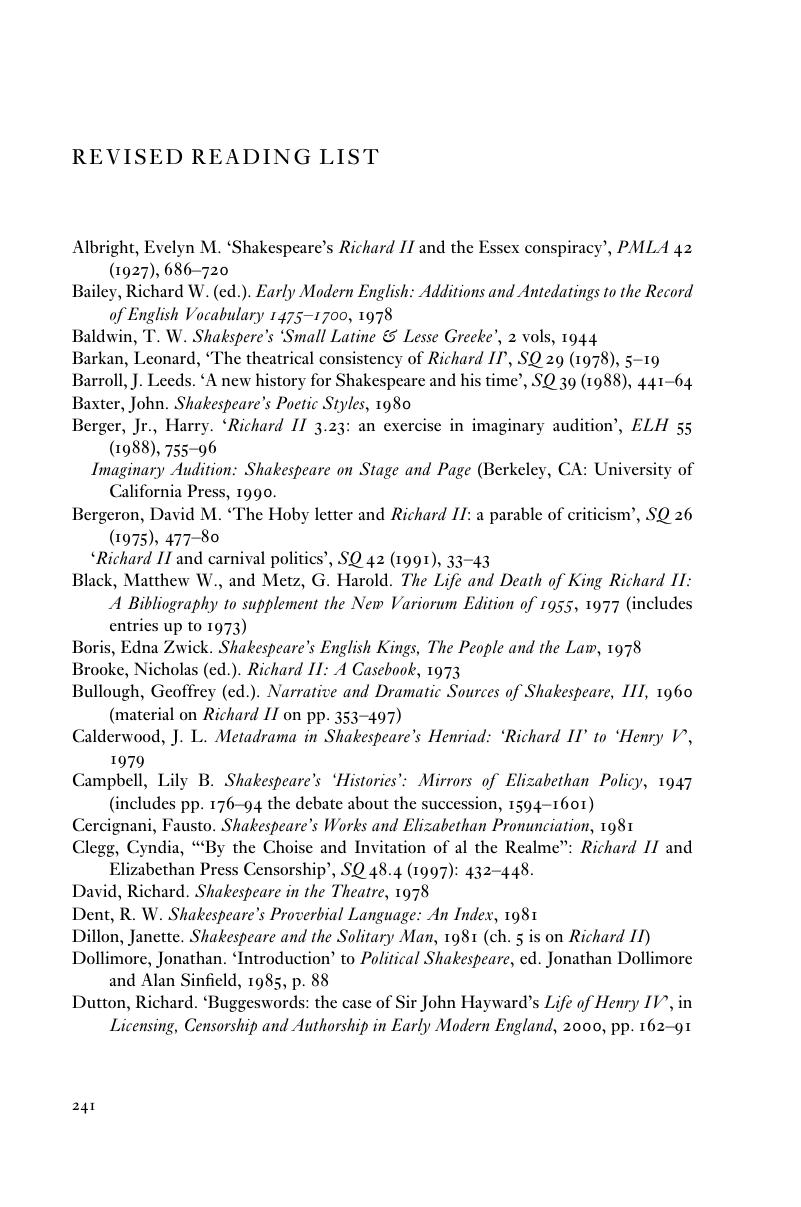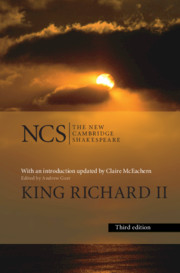Book contents
- The New Cambridge Shakespeare
- The New Cambridge Shakespeare
- King Richard II
- Copyright page
- The New Cambridge Shakespeare
- Contents
- Illustrations
- Preface
- Acknowledgements
- Abbreviations and Conventions
- Introduction
- Note on the Text
- King Richard II
- Textual analysis
- Book part
- Revised Reading List
- References
Revised Reading List
Published online by Cambridge University Press: 16 August 2019
- The New Cambridge Shakespeare
- The New Cambridge Shakespeare
- King Richard II
- Copyright page
- The New Cambridge Shakespeare
- Contents
- Illustrations
- Preface
- Acknowledgements
- Abbreviations and Conventions
- Introduction
- Note on the Text
- King Richard II
- Textual analysis
- Book part
- Revised Reading List
- References
Summary

- Type
- Chapter
- Information
- King Richard ll , pp. 241 - 244Publisher: Cambridge University PressPrint publication year: 2018

